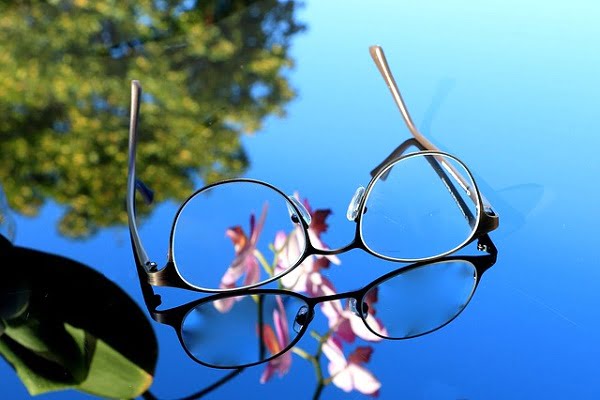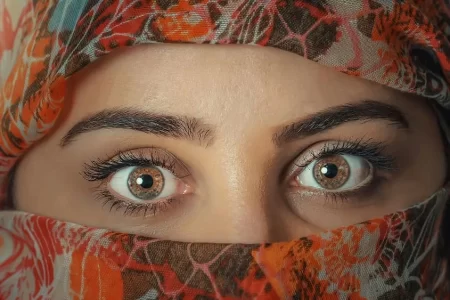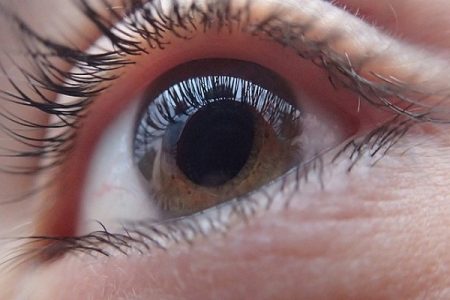Low Vision Glasses for Stargardt Disease and Other Forms of Macular Degeneration
- Updated on: Mar 2, 2026
- 3 min Read
- Published on Jul 19, 2022


What are low vision optical devices (low vision glasses)?
Low vision optical devices include such as magnifiers, strong magnifying reading glasses, and wearing glasses or lenses that are used for cases with extremely low vision. Since these devices can provide greatly increased magnification powers, they are considered different from regular eye glasses.
Low vision optical devices are usually task-specific, and your doctor may prescribe several different glasses for different tasks. You may get one device for reading, another for watching television, another for working on the computer screen, and so on.
If you have low vision, your standard eyeglasses are not sufficient to help with distance and near tasks. Therefore, your eye doctor may order several different special glasses for you to help with a variety of everyday tasks. For more information on specialized low vision optical devices, you can visit A New Vision Inc.
Why do you need low vision glasses (blind glasses)?
When a patient suffers from a vision condition, he or she may require low vision glasses to help with the vision loss condition. Sometimes, these glasses can help in extreme cases of vision loss such as even when you are considered legally blind.
Some common conditions when low vision glasses are helpful are:
- Macular degeneration
- Stargardt Disease – a specific rare case of macular degeneration
- Diabetic retinopathy
- Cataracts
See also: Vision Aids or Visual Aids for Macular Degeneration
Stargardt disease glasses and macular degeneration glasses
Stargardt’s disease (also called fundus flavimaculatus), is a form of juvenile macular degeneration that’s inherited through parents. It is a rare disease and only about 0.01% population is affected with this disease. Stargardt’s disease is characterized by early age loss of central vision in children. The most important symptom of this disease is the loss of visual acuity. The visual acuity of the patient may range from 20/50 to 20/200. Read more about Stargardt’s disease.
Currently, there is no proven treatment for stargardt disease. However, clinical trials related to stem cell therapy are underway that gives some hope. It’s sometimes possible to manage stargardt’s disease even if it has reached to the extent of legal blindness. There are some companies who develop stargardt disease glasses.
These special low vision glasses for Stargardt disease and macular degeneration are not available at most regular eye doctor’s clinics. A person must meet a low vision optometrist or eye doctor who is trained in low vision optics. He or she can evaluate your symptoms to determine which glasses are the most helpful. You must first try the glasses to be sure that the vision is improved before purchasing them.
See also: Stargardt Disease (Fundus Flavimaculatus): Causes, Signs, Symptoms, Diagnosis, and Treatment
See also: Macular Degeneration (Age-Related Macular Degeneration): Causes, Symptoms, Diagnosis, and Treatment
Types of stargardt disease and macular degeneration glasses
Various types of stargardt disease and macular degeneration glasses available currently are as follows.
Prism based glasses for stargardt’s disease
These are special prism based lenses that are used in glasses to allow the refraction of light in such a way that the blind spot created by the macular degeneration such as stargardt disease is reduced. While, the blind spot can’t be removed completely, its size can be reduced to a level that you can experience better vision. You can use them for activities such as reading, writing, or other indoor activities and games.
It may take some time to adjust seeing through the prism. Some people complain of dizziness or not seeing properly in the beginning.
Bioptic telescopic glasses for stargardt’s disease
Bioptic glasses are specialized glasses with two small telescopes for each lens of the glasses. These glasses help patients see better and perform day to day tasks such as reading, writing, playing indoor games, and even driving.
UV screening sunglasses for stargardt’s disease
Ultraviolet rays seem to improve the macular degeneration in Stargardt’s disease. Ultraviolet screening sunglasses can be used by patients who suffer with macular degeneration or are at high risk for it.












